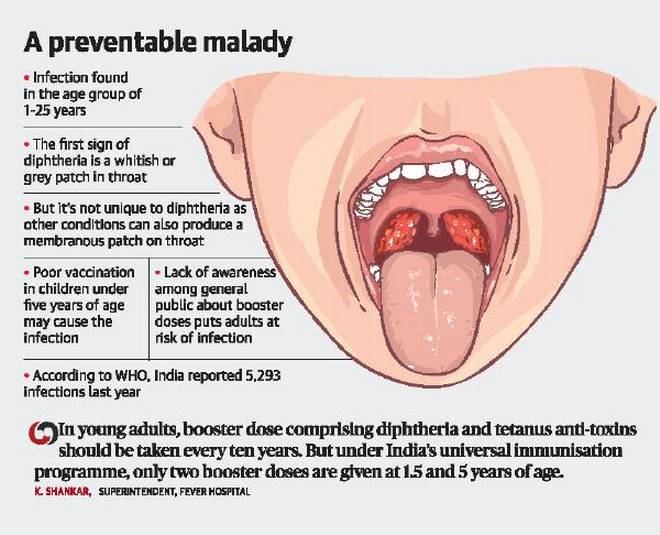- Diphtheria is a severe communicable and bacterial infectious disease that causes inflammation of the mucous membranes by forming a false membrane in the throat which creates a problem while swallowing food and during breathing.
- It can also damage nerves by a bacterial toxin present in the blood. Currently, this syndrome is rare in developed countries. This disease spreads easily from one person to another but can be prevented by the use of vaccines.
- The signs of diphtheria appear in a short period of time within three to five days after the infection has occurred. Some people do not feel any symptoms, while others do feel slight symptoms of a common cold. The most common and visible symptom of diphtheria is gray, thick covering on the tonsils and throat.
- The first step in treating diphtheria is an antitoxin injection. This is used to minimize the effect of toxin produced by the bacteria. The doctors also prescribe antibiotics, such as erythromycin and penicillin to clear the infection. During the treatment, patients are instructed to stay in the hospital in order to avoid the spread of infection to others.
- Diphtheria can be prevented to an extent by the use of vaccines and antibiotics. The vaccines for diphtheria is called DTaP. It’s normally given in a single shot with vaccines for diphtheria, tetanus, and pertussis
